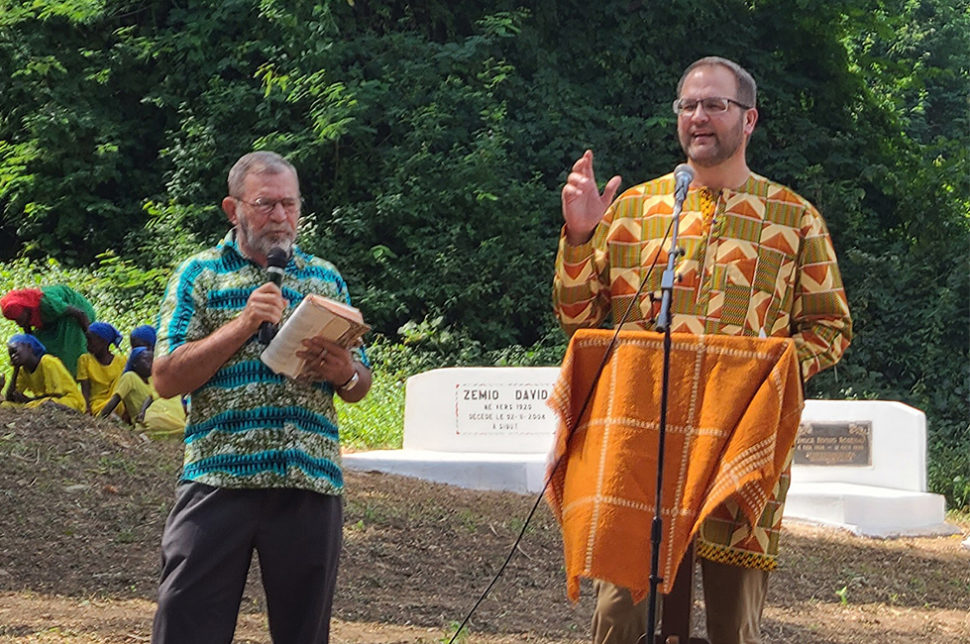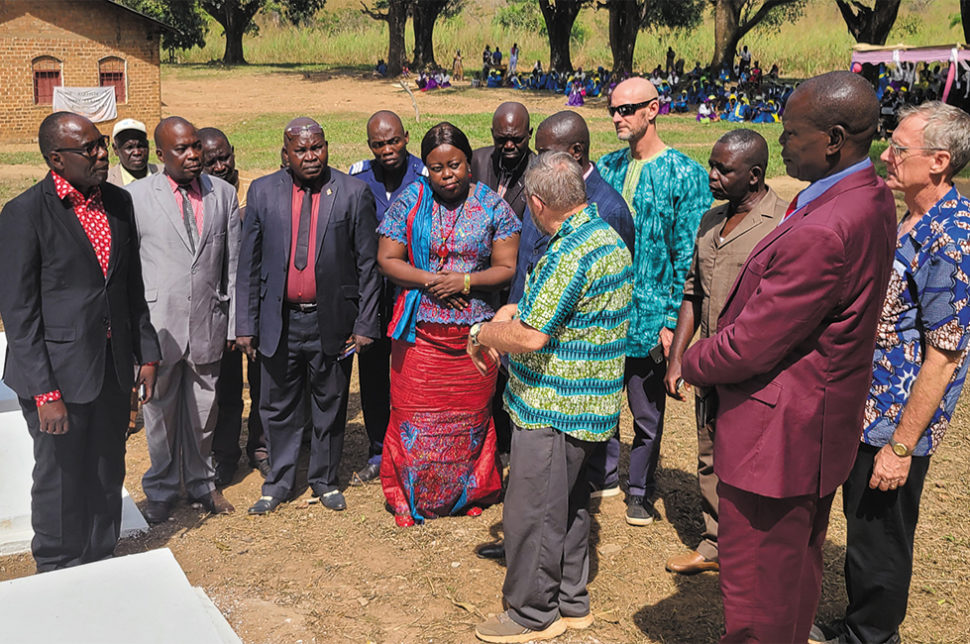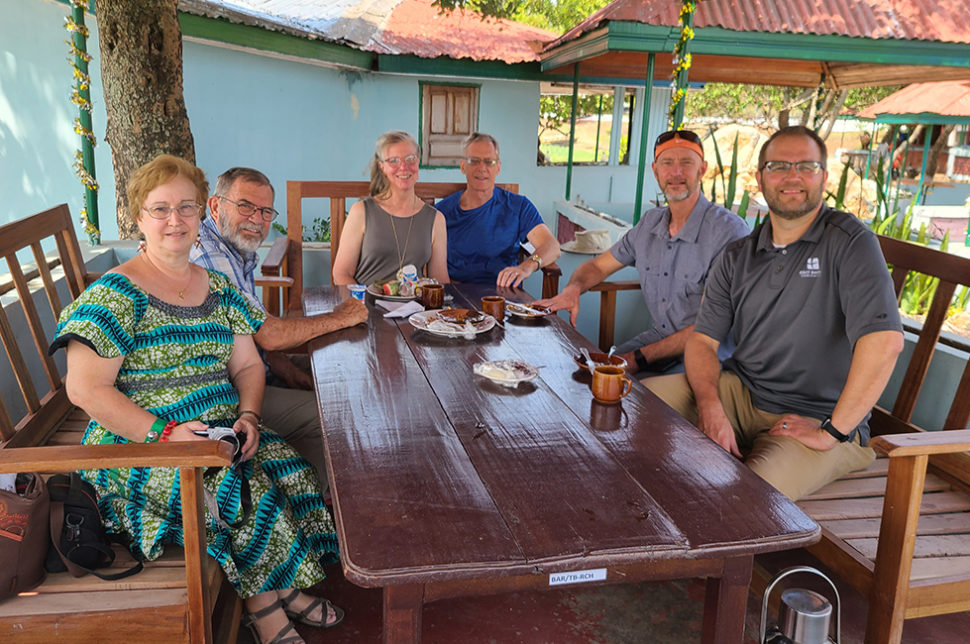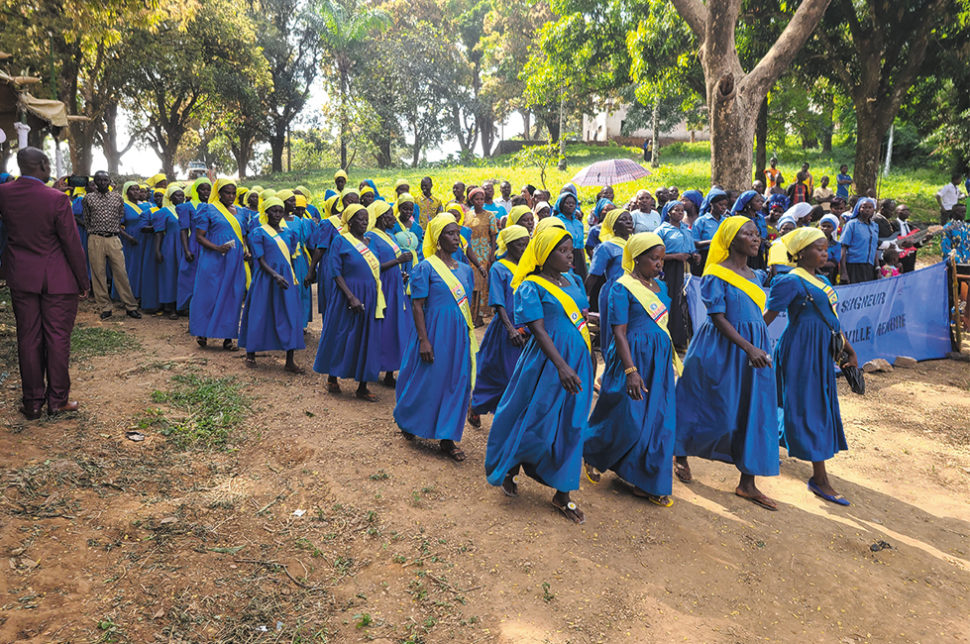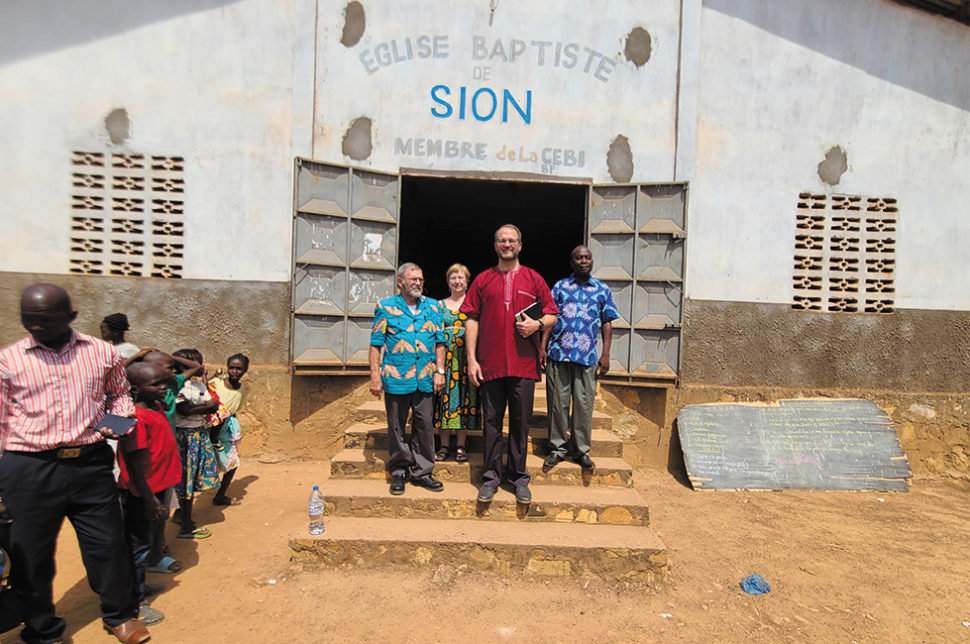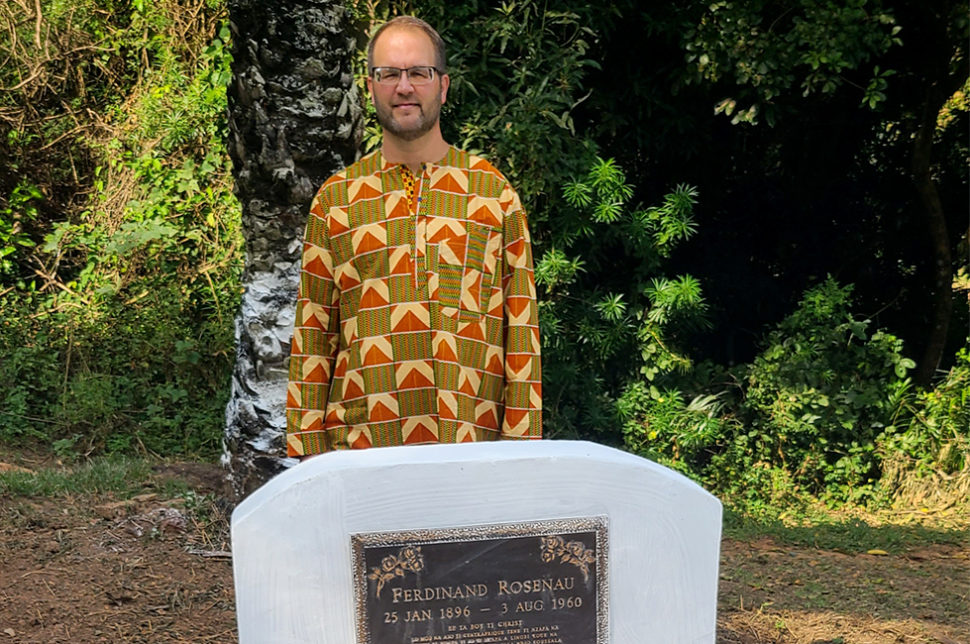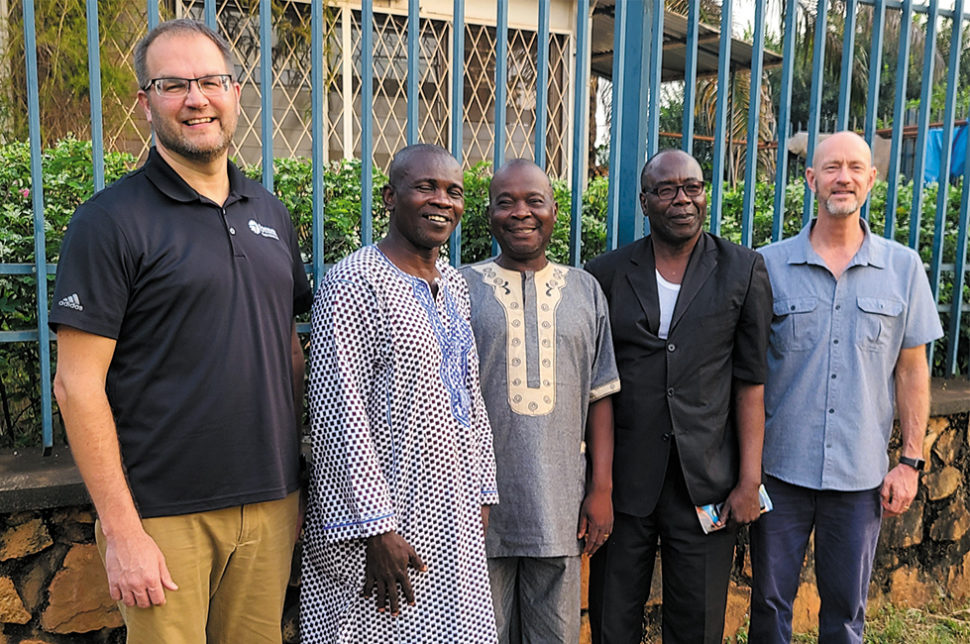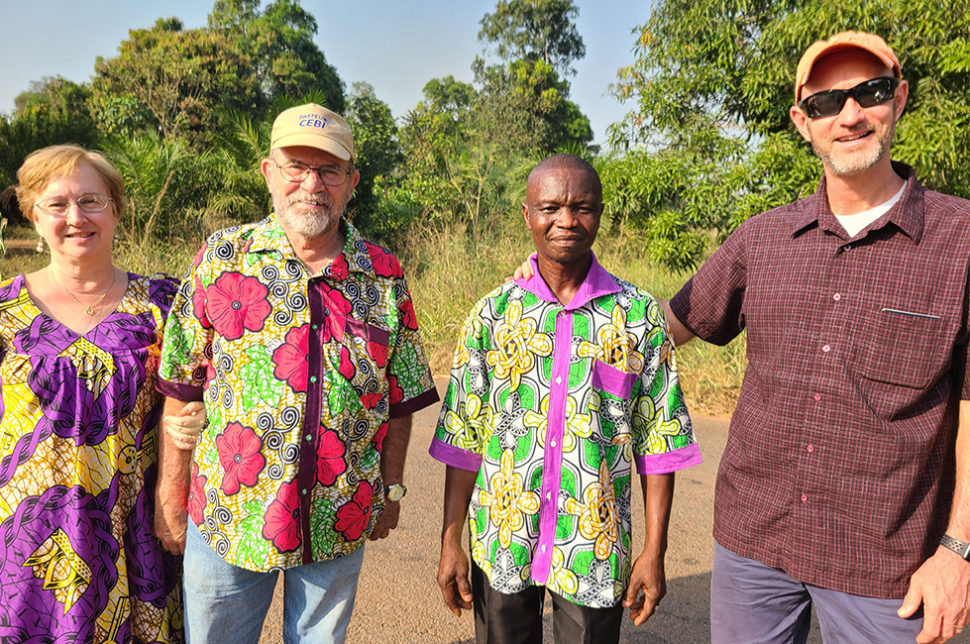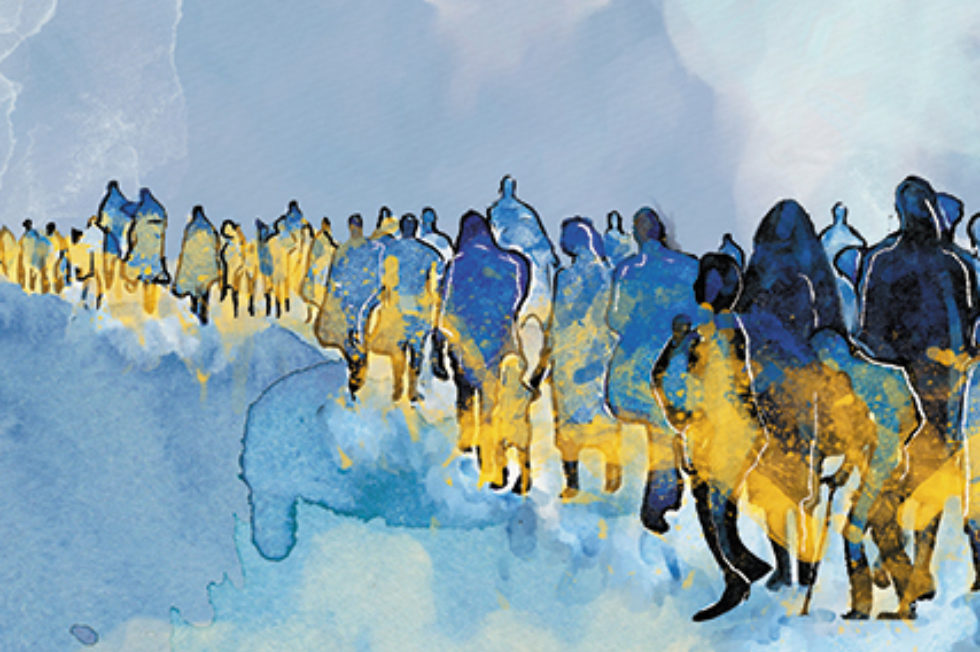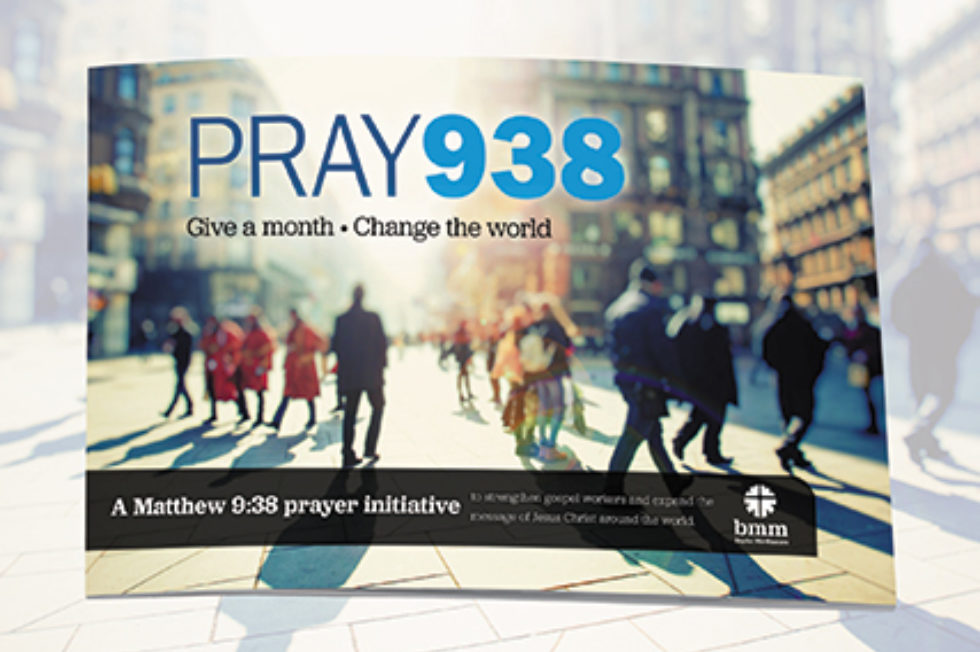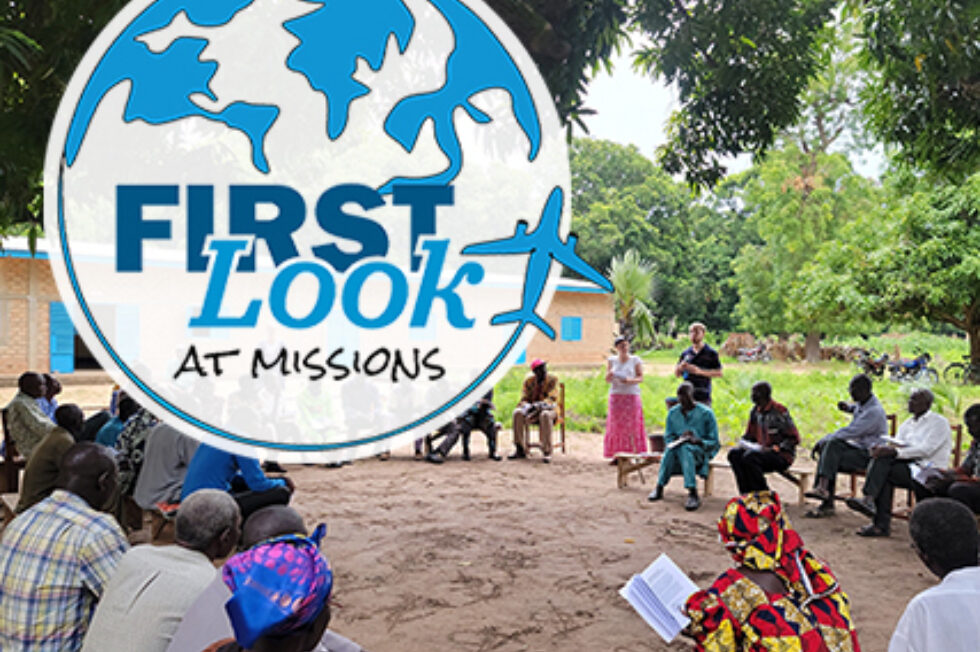-
-
Summer 2022 Costly Sacrifices
Advance Magazine
Summer 2022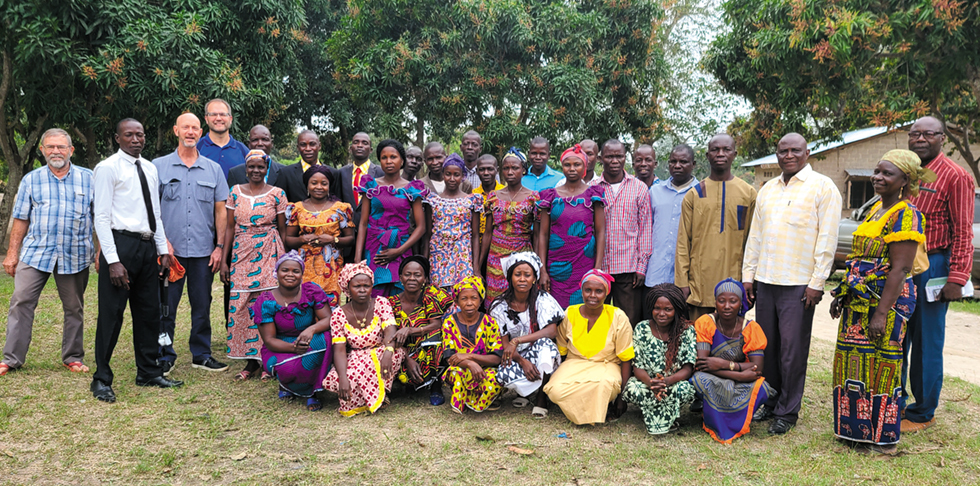
Costly Sacrifices
Six gravestones, some dating back to the 1920s, rest on a gentle slope near BMM’s Sibut mission station in the Central African Republic (CAR). The Sibut station has long been in the hands of CAR Christian leaders, and so the small cemetery is theirs to watch over. Each time they walk past the gravestones and run their fingers over the nameplates, they are reminded of costly sacrifices made so that they might have life.
In the early 1920s, an era when the people of CAR still worshiped inanimate objects and feared dark spirits, God sent the gospel through missionaries. Those pioneering messengers gave up the comforts of home and risked their lives to reach an area where cannibalism was still practiced. No missionaries encountered that threat, but there was nonetheless a price to pay to sweep away the enemy’s lies among a people group enslaved by fear. God’s message was freedom itself: His Son, Jesus, died for them so that they would have life—free from fear and secure forever!
The Africans saw Christ’s sacrifice lived out in the lives of missionaries as some lost their babies and small children from African diseases. Some lost their own lives as they kept serving despite cancer, illness, and accidents. Six of their bodies are tucked away in this little graveyard that speaks so profoundly of the cost and reward of missions.
No wonder the leaders of CEBI (the African association of churches started by BMM missionaries) chose this cemetery as the setting for their celebration of Baptist Mid-Missions’ 100th anniversary in December 2021 (delayed by the pandemic). They cleared the area and whitewashed the gravestones to form a fitting backdrop. BMM President Patrick Odle and Africa Field Administrator Steve Gault (who grew up in CAR and served there) made the long journey to Sibut to celebrate this milestone alongside CEBI leaders, church members, and BMM missionaries Charlie and Gai Jewell and John and Paula Dannenberg.
Triumphal procession
Wearing special uniforms, a parade of church members marched two miles to attend the event. They were the Women of Truth ladies’ group decked in royal blue dresses draped with yellow embroidered sashes and topped with matching headscarves. Following them were the Lumieres (Lights) girls’ groups in bright greens, reds, and yellows. Then came the Flambeau (Torches) boys’ group and long lines of other church members who filled the meeting site’s perimeter.
Singing is integral to CAR’s celebrations. A large church choir animated the celebration with songs that led listeners on a walk through BMM history. They sang out stories of missionaries and the churches they started, along with God’s own stories from their beloved Sango Bible. When BMM’s founder, William Haas, pioneered missions in CAR in 1920, he encouraged the use of Sango as a common language to unite CAR’s scattered tribes. He and successive missionaries translated the Bible into that language, an accomplishment that played a crucial role in Sango’s selection as one of CAR’s official languages.
First visit to Africa
The CAR Christians were deeply gratified that BMM President Patrick Odle chose CAR for his first visit to Africa. One leader remarked, “Coming to CAR proved that President Odle loves Africa, but coming to Sibut [a potentially dangerous journey to a place with few amenities] proves that he loves Africans.” Truly, the anniversary was significant in everyone’s eyes. It drew the attendance of not only Sibut’s mayor but also the governor of their region, who came in person rather than sending a representative. She knew all the songs, a testimonial to the extensive spread of Christianity in this nation
As a keynote speaker, Dr. Odle encouraged the people from 2 Timothy 4, exhorting them to keep going on their walk of faithfulness, holding fast to all they have learned from God’s Word through 100 years of missionaries and their own Christian leaders. Steve Gault followed with the challenge Moses gave Joshua when it was time for him to take over leadership. Steve said, “Many missionaries have gone before you, and those left are now ready to retire. It is your turn to be strong and courageous and take the land for Christ. Stand on the shoulders of those who came before you and take the churches and ministries to even higher levels.”
“They brought the light to our dark world. And now we have all these churches, Bible colleges, and other ministries.”
A deeply wearied church
These messages were anything but niceties. They refreshed a church deeply wearied by war, persecution, and poverty. The church in CAR has faced tests surpassing anything we’ve experienced in North America. For nearly 10 years, civil unrest has shaken this nation, most recently from militia groups pressing down from Saharan Africa in untiring attempts to claim CAR for Islam.
Steve Gault tells the story of Matthias, a pastor he trained in the town of Kembe. When soldiers captured Matthias, he shouted to his children to run into the woods. Crouched behind thick bushes, his children watched in terror as the soldiers brutally murdered and dismembered their father. Another pastor faced the agony of watching soldiers kill his son in the same way. In the town of Tagbara, rebel soldiers shot a pastor, dragged him to the side of the road, and left him to die. For three days, his body lay there; it was too dangerous to retrieve it for burial. Finally, the Women of Truth group donned their uniforms and marched out carrying CAR’s flag. Surrounding the pastor’s body, these brave women dug a roadside grave and buried him. They put their lives at great risk to honor this man of God.
Life in such an environment calls for great courage, but how does a Christian forgive such atrocities? CEBI church members still grapple with questions like this. Their pastors struggle to serve their traumatized congregations when they themselves are traumatized. Pastors in rural communities may have only a third-grade education. They must farm full-time to earn a living; their people cannot afford to pay their salary. Many CAR Christians live in poverty because soldiers looted everything they own, including their Bibles. Their church buildings were demolished, and some congregations now meet in grass huts.
The silver lining
CEBI Christians can see a silver lining in their hardships. In some areas, Christians who were displaced by the conflict spread the gospel to their new locations. As a result, Christianity is expanding, and new churches are being established. A new generation of young people is being stirred by their country’s dire needs. Many more are studying at Bible schools to become the next generation of leaders.
The church in CAR has its own problems. It struggles with the same spiritual and moral issues that stain North American churches, and its people need more growth and deeper discipleship, just as we do. Yet they are a grateful church that sits on a strong foundation. At the anniversary celebration in Sibut, a faithful elderly pastor reminisced about the missionaries he remembered: “They brought the light to our dark world.” Spreading his hands wide, he said, “And now we have all these churches, Bible colleges, and other ministries.”
Because of the sacrifice of Jesus, missionaries were willing to risk their lives and the lives of their children to bring that light. The CEBI Christians themselves have counted the risk, and they too consider allegiance to Christ more imperative than their earthly lives.
“They know that it takes costly sacrifice for others to have that light.”
We are one with them
At the end of the row of six graves in Sibut, a seventh body was laid in 2008. This time it wasn’t a missionary or child but an African who had lived a long, rich life. Pastor Zemio was born around 1920, the year BMM was founded. His training came through the lips of our early missionaries, and he served faithfully until his late 80s, a remarkable age to reach in CAR. When he died, the Christians of Sibut asked if he could be buried in the missionaries’ plot, and permission was readily granted. It was a profound moment. It confirmed to the Africans that they were considered equals with the missionaries and BMM—that we are one with them and they are one with us—just as God intends.
The gospel can change a nation
The story of CAR is the story of how the gospel can change a nation. Churches cover CAR’s landscape, and thousands of them trace their roots to BMM. The Christians of CEBI have established a graduate-level seminary in the capital of Bangui. They dream of starting a Christian school and hospital ministry and of building a headquarters for CEBI. The Christians of CAR now stand on the shoulders of generations of missionaries who brought God’s light and trained them to spread that light. They know that it takes costly sacrifice for others to have that light. They have paid that price, and they keep walking on Christ’s path. They are now missionaries to their own land, bringing the light that still has power to dispel the darkness around them.
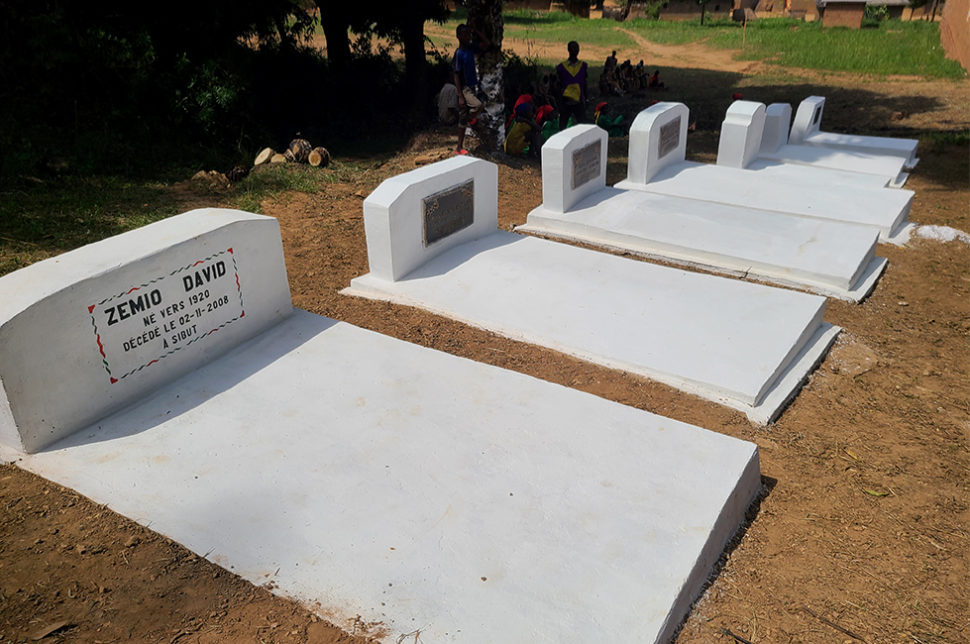
The Sibut cemetery BMM missionaries and children, along with Pastor Zemio, are buried Related Pages
World Relief Ukraine"For such a time as this." BMM Europe missionaries are helping in the effort to care for Ukrainian refugees.
PRAY938Imagine what God could do through laser-focused prayers lifted by an army of praying warriors among our supporting churches.
FirstLook at MissionsBMM's FirstLook internship program sent more than a dozen students to nine countries to get their first (and sometimes second or third) look at missions.
© 2024 BMM. All Rights Reserved. | Privacy PolicyContinue browsing

